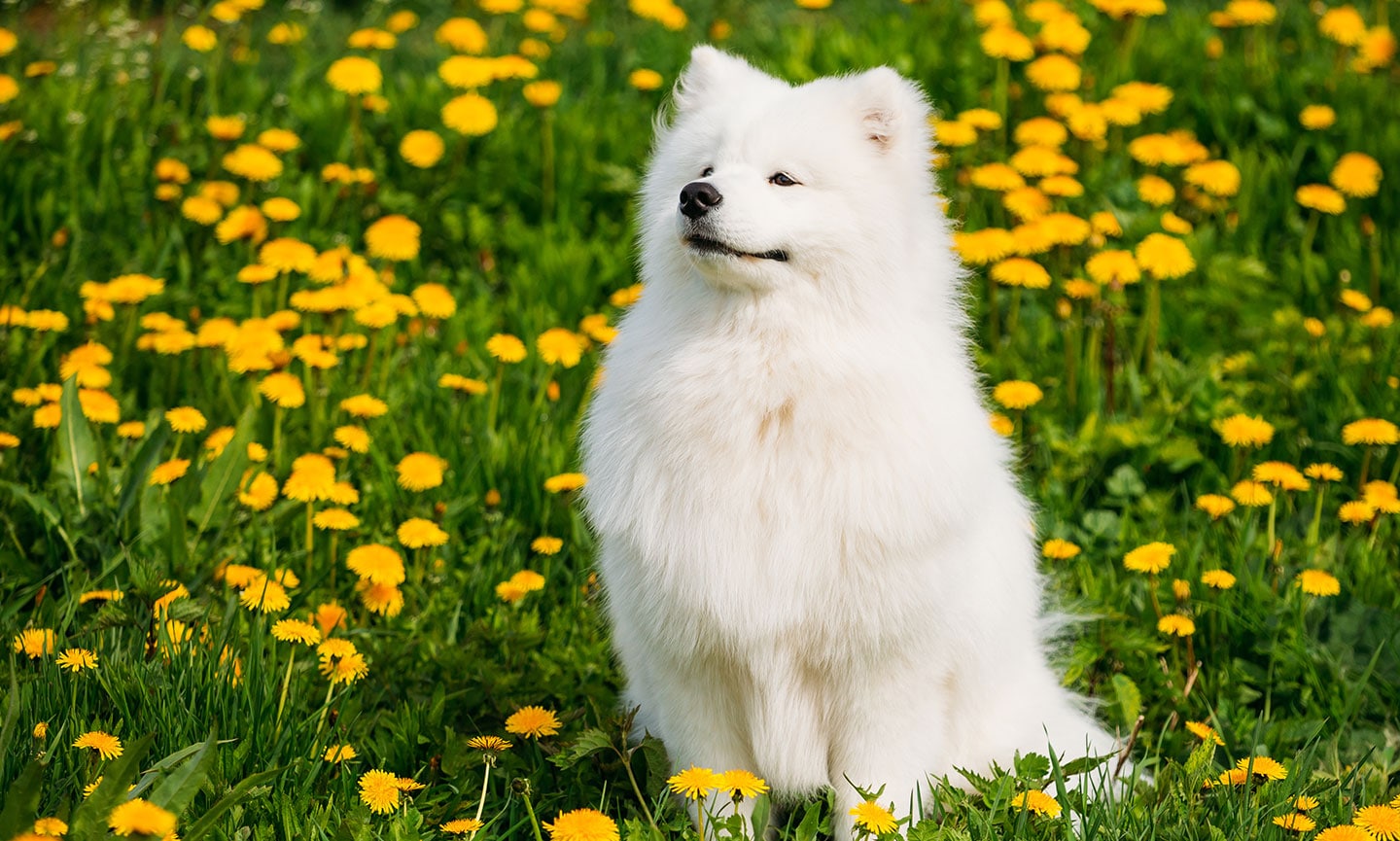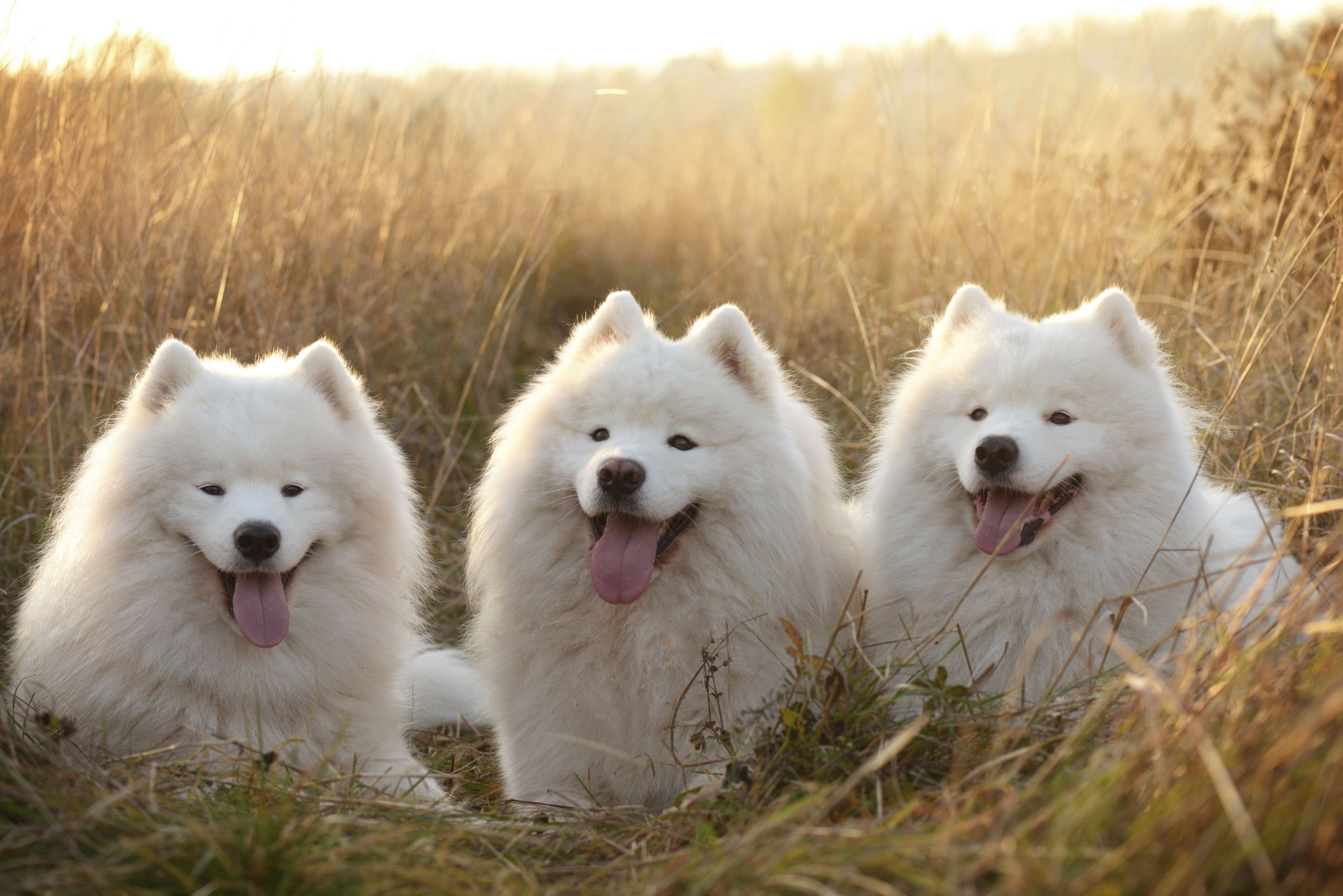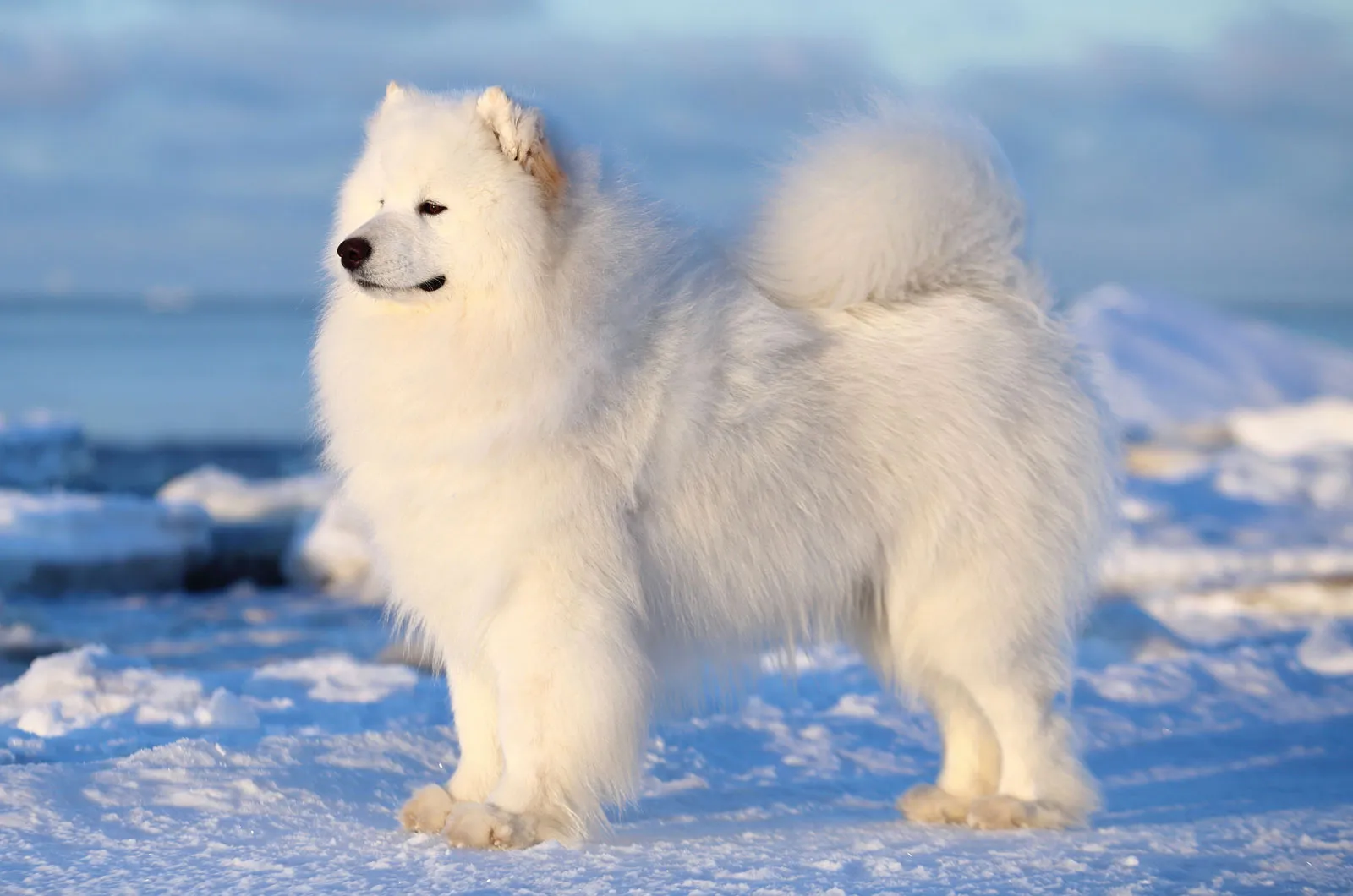
The Samoyed, with its signature “Sammy smile,” hails from Siberia, where it was developed by the Samoyedic peoples (now known as the Nenets). These nomadic tribes bred Samoyeds to herd reindeer, pull sleds, and keep their owners warm at night. Their thick, weather-resistant coats allowed them to survive the harsh Arctic climate, while their strong work ethic made them invaluable companions.
When explorers ventured into the Arctic in the late 19th and early 20th centuries, they brought Samoyeds back to Europe and beyond, where the breed quickly gained admiration for both its beauty and spirit.
The Samoyed's friendly nature and stunning appearance have made it a favorite among dog lovers worldwide. In North America and Europe, the breed is often seen in dog shows, family homes, and winter sports events. Their photogenic charm, coupled with their affectionate temperament, keeps them consistently popular despite the breed's grooming demands.
Samoyeds continue to be cherished for their role as loyal companions, therapy dogs, and even in recreational sledding.
The Samoyed is a medium-to-large, powerfully built dog with an unmistakable, cheerful expression.
• Height: 19–23.5 inches (48–60 cm)
• Weight: 35–65 pounds (16–29 kg)
• Build: Sturdy, muscular, and graceful
• Coat: Dense, double-layered; harsh outer coat and soft, insulating undercoat
• Color: Pure white, cream, or biscuit
• Head: Wedge-shaped with a strong muzzle
• Eyes: Dark, almond-shaped, lively
• Ears: Small, triangular, and erect
• Tail: Plumed and carried curled over the back
Their sparkling white coat is not just beautiful — it serves as insulation against extreme cold.
Samoyeds are known for their social, lively, and adaptable personalities.
• Affectionate: They form strong bonds with their families and love attention.
• Intelligent: Quick learners, though they can exhibit independent thinking.
• Energetic: High energy levels; require regular physical and mental stimulation.
• Vocal: Known for "talking" to their owners with a range of sounds.
• Friendly: Excellent with children and typically get along well with other pets.
Their cheerful demeanor makes them wonderful companions, but they do best with active families.

The Samoyed is ideal for:
• Active families or individuals who enjoy outdoor activities
• Homes that can offer consistent exercise and play
• Owners seeking a sociable and affectionate dog
• Cold climates where their coat is an advantage
However, it may not be ideal for:
• People averse to heavy shedding
• Owners unable to commit to daily grooming
• Families wanting a low-maintenance dog
• Apartment dwellers without access to ample exercise opportunities
Samoyeds require diligent care to stay healthy and happy.
• Exercise: High; needs vigorous daily exercise and mental stimulation.
• Training: Positive reinforcement works best; early socialization is crucial.
• Grooming: Intense; daily brushing is recommended, especially during shedding seasons.
• Living Environment: Prefer cooler climates; heat-sensitive.
• Feeding: Balanced, high-quality diet suited for active, medium-large breeds.
Their luxurious coat needs special attention to prevent matting and maintain health.
Samoyeds are generally hardy but can be prone to specific health issues:
• Hip dysplasia
• Progressive retinal atrophy (PRA)
• Diabetes
• Hypothyroidism
• Cardiac problems
Their typical lifespan is 12 to 14 years, with proper health screenings improving their quality of life.

• Alaskan Malamute: Larger and stronger, Malamutes are less social but more independent.
• Siberian Husky: Huskies are generally more mischievous and less people-focused than Samoyeds.
• American Eskimo Dog: Similar in appearance but smaller, and with slightly different personality traits.
If you want a dog that thrives on human interaction, loves activity, and will fill your life with endless smiles, the Samoyed could be the perfect match. They are best suited for homes that understand the needs of a high-maintenance coat and a high-energy dog.
Prospective owners must be committed to grooming and providing an active lifestyle to ensure a happy, healthy Samoyed.
Always seek reputable breeders who prioritize health screenings, particularly for hips, eyes, and cardiac health. Rescue organizations specializing in Northern breeds often have Samoyeds needing forever homes.
United Pet Club offers resources like microchip registration, grooming guides, and health management tips to support your journey with your new Samoyed.